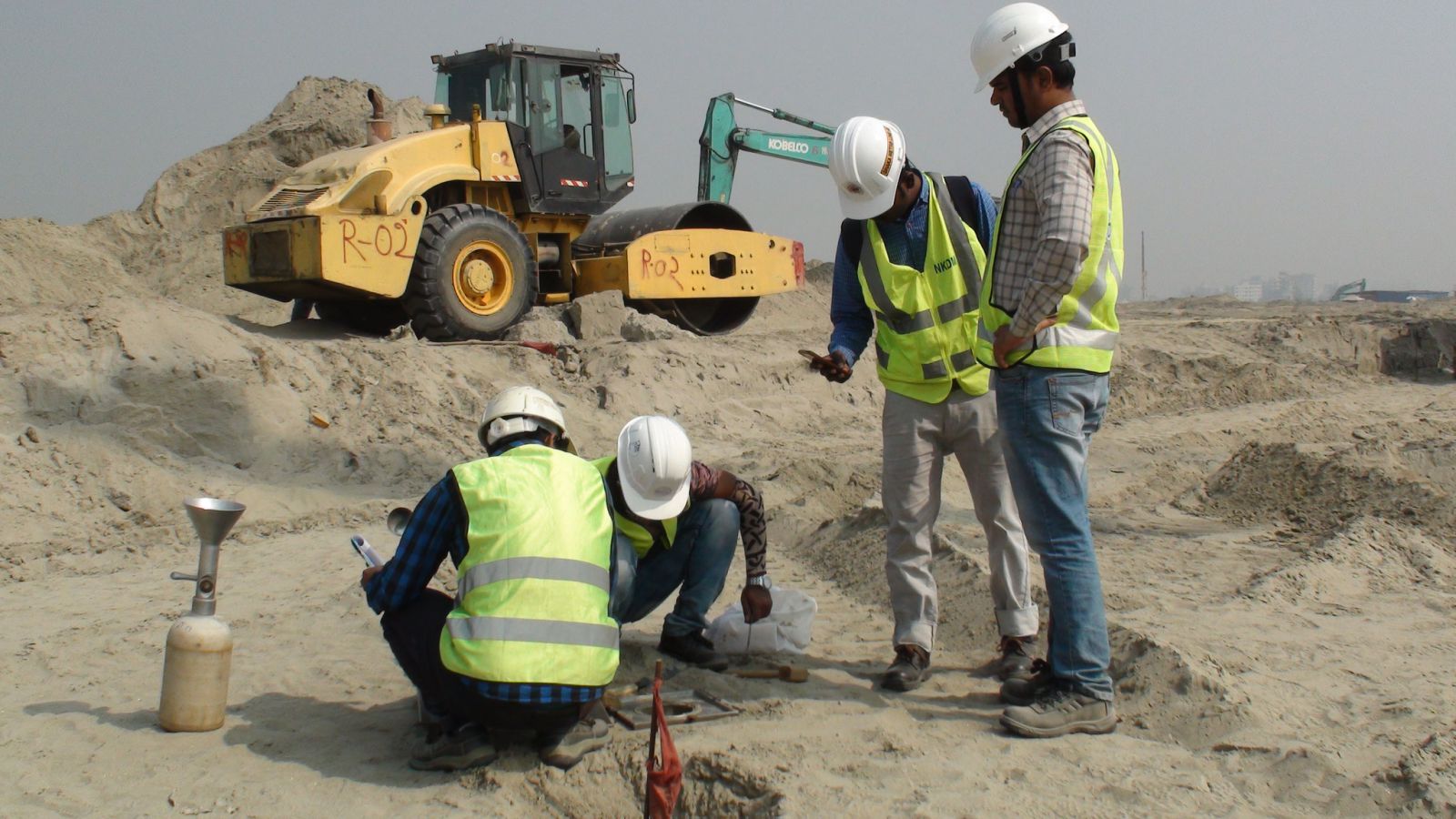Specialist Consulting Engineer Solutions for Ingenious Facilities Solutions
Specialist Consulting Engineer Solutions for Ingenious Facilities Solutions
Blog Article
The Interdisciplinary Approaches in the Geotechnical Industry: Connecting the Space In Between Engineering, Geology, and Environmental Science for Optimal Job Results
The integration of engineering, geology, and environmental scientific research within the geotechnical sector is not just useful; it is necessary for attaining optimum job end results. What approaches might arise to promote this crucial partnership and improve the effectiveness of geotechnical methods?
Value of Interdisciplinary Collaboration
The significance of interdisciplinary cooperation in the geotechnical industry can not be overstated. Reliable geotechnical tasks require the integration of varied competence from numerous areas, consisting of engineering, geology, and environmental scientific research. This cooperation makes sure that all elements of a job are thought about, resulting in comprehensive remedies that resolve complicated difficulties.
When working in seclusion,Interdisciplinary collaboration promotes advancement by enabling professionals to share understandings and approaches that might not be obvious. By leveraging the staminas of numerous self-controls, teams can determine possible risks, enhance style processes, and improve the sustainability of geotechnical tasks. Such cooperation advertises a holistic understanding of site-specific conditions, which is critical for accurate assessment and decision-making.
The complexity of geotechnical tasks requires a coordinated approach to analytical. Inevitably, interdisciplinary partnership is essential for advancing ideal practices and accomplishing quality in the geotechnical industry.
Secret Duties of Each Discipline
Partnership amongst various techniques is not just advantageous; it is crucial for the effective execution of geotechnical jobs. Each technique-- engineering, geology, and ecological scientific research-- plays an unique yet interconnected role that adds to forecast efficiency and sustainability.
Geotechnical designers are largely in charge of creating foundations and ensuring architectural integrity. They examine soil and rock homes to assess load-bearing abilities, giving vital information for secure building practices. Their experience enables the formula of ingenious options to complicated challenges.

Ecological researchers evaluate the potential influences of building and construction on ecosystems and water sources. They perform environmental assessments and develop reduction methods to minimize damaging effects. By incorporating environmental considerations, they make sure compliance with policies and promote sustainability throughout the job lifecycle.
Study of Successful Combination
Successful assimilation of geotechnical disciplines can be exhibited through various situation studies that highlight the efficiency of teamwork in addressing complicated engineering obstacles. One significant example is the building of the Hong Kong-- Zhuhai-- Macau Bridge, where a collaborative strategy entailing geotechnical engineering, geology, and environmental science was crucial. Designers and rock hounds operated in unison to analyze the seabed problems and optimize the structure design, guaranteeing security and reducing ecological effect.
Another impactful case is the renovation of slope security in the San Francisco Bay Location, where an interdisciplinary team integrated geotechnical evaluation with environmental assessments. By integrating hydrological studies and geological studies, the group properly identified prospective landslide risks and executed reliable reduction actions, boosting security and sustainability.
In addition, the redevelopment of Brownfield websites commonly requires a multidisciplinary approach. In one case in Chicago, collaboration among geotechnical engineers, environmental researchers, and metropolitan organizers resulted in the successful remediation of contaminated dirt, permitting the safe change of the site into a neighborhood park. These situation research studies show that interdisciplinary cooperation not only addresses technical challenges however additionally promotes ingenious remedies that benefit both jobs and areas.
Difficulties in Multidisciplinary Projects
.webp)
Furthermore, coordinating routines and workflows amongst various teams can be troublesome, especially when each technique has distinct job landmarks and deliverables. This misalignment can lead to delays and boosted prices. The challenge of resource allotment likewise looms huge; guaranteeing that specific competence is available at critical points needs cautious planning and foresight.
Lastly, regulatory compliance poses another significant obstacle. Each technique may face different regulatory frameworks, and lining up these demands visit here to fulfill job goals can be taxing and intricate. Resolving these obstacles requires strong management and reliable communication techniques to foster collaboration and ensure that multidisciplinary groups function cohesively in the direction of shared goals.
Future Trends in Geotechnical Practices
As the geotechnical industry develops, emerging patterns are improving techniques to address the obstacles faced in multidisciplinary tasks - geo tech engineer. One substantial fad is the enhanced integration of advanced innovations, such as synthetic intelligence and artificial intelligence, right into geotechnical analysis and layout. These technologies boost predictive modeling and risk analysis, enabling engineers to make even more informed choices throughout the task lifecycle

Additionally, the fostering of electronic doubles and real-time tracking systems is becoming much more common. These tools promote recurring assessment of soil problems and structural performance, enabling for timely treatments when problems develop.
Verdict
To conclude, the assimilation of engineering, geology, and ecological scientific research is important for accomplishing optimal results in the geotechnical market. Interdisciplinary cooperation cultivates development, boosts problem-solving capacities, and straightens technological requirements with environmental sustainability. Successful instance research studies illustrate the benefits of this approach, while acknowledging the obstacles faced in multidisciplinary jobs. Looking in advance, accepting these joint techniques will certainly be necessary for browsing future patterns and advancing the area of geotechnical engineering.
The assimilation of engineering, geology, and ecological scientific Homepage research within the geotechnical market is not simply advantageous; it is necessary for accomplishing optimal task results. Effective geotechnical projects call for the combination of diverse competence from different fields, consisting of engineering, click geology, and ecological science.Browsing the complexities of multidisciplinary projects in the geotechnical market provides a number of considerable challenges.As the geotechnical market advances, arising fads are improving techniques to address the difficulties faced in multidisciplinary jobs. Geotechnical designers are significantly working together with environmental researchers to ensure that tasks line up with sustainability goals and conform with governing demands.
Report this page